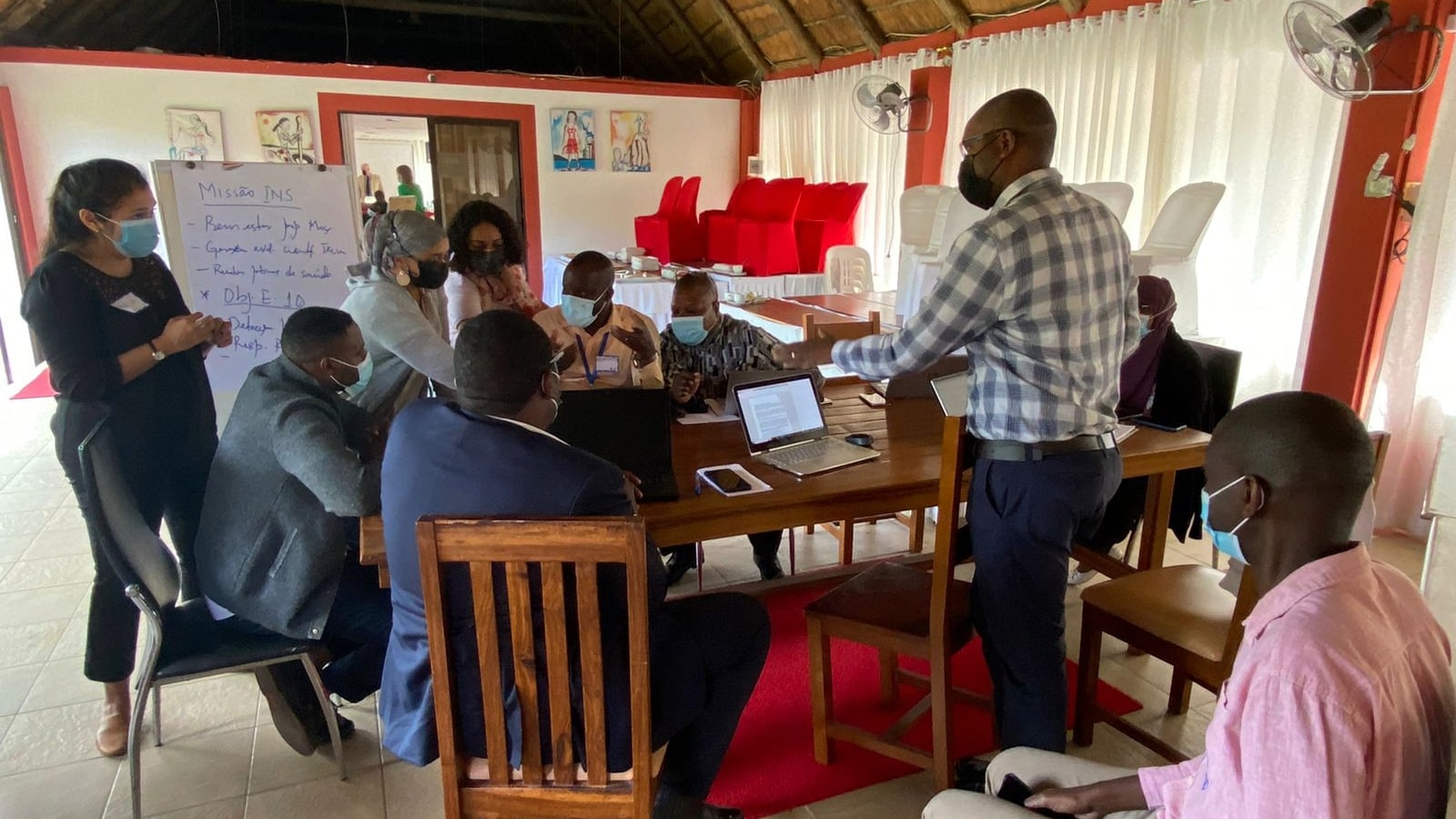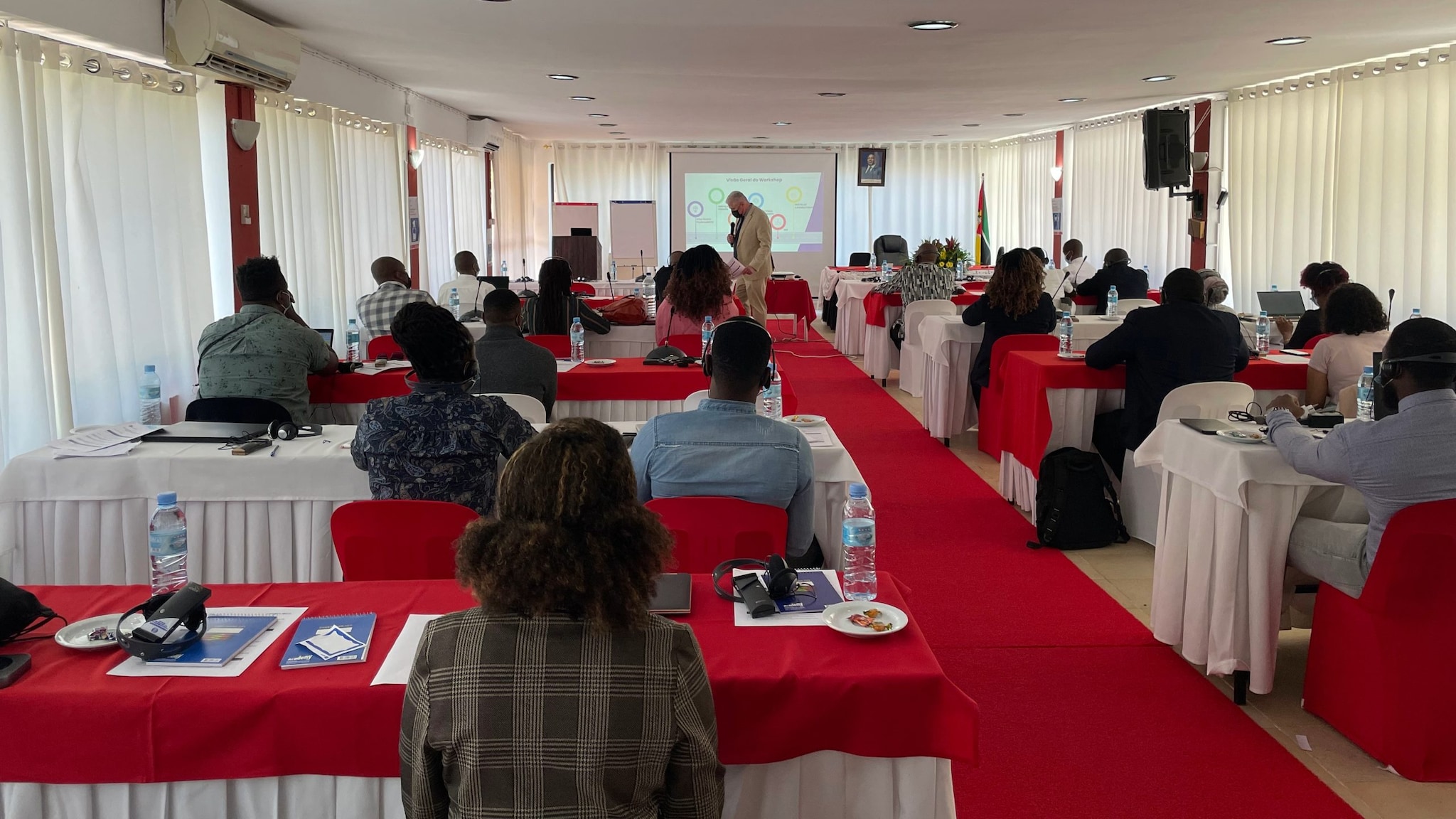At a glance
- Mozambique faces challenges from natural disasters and disease outbreaks.
- CDC collaborated with Mozambique to prepare the country's workforce for future threats by conducting a Health Emergencies Strategic and Operational Planning workshop.
- The workshop is a model for CDC's global capacity-building initiatives, ensuring Mozambique is prepared for future health emergencies.
Strengthening Emergency Response

It is more important than ever for countries to promptly detect and respond to public health emergencies. CDC's Emergency Response Capacity Team plays a vital role in preparing countries like Mozambique for efficient response to public health emergencies. These capacity building efforts align with the U.S. government's Global Health Security strategic framework.
Mozambique faces unique challenges in emergency preparedness and response. In the past ten years, Mozambique has experienced several natural disasters including two tropical cyclones in a single season. This is the first time such an event has happened in recorded history. The country's National Public Health Institute (INS), has responded to multiple natural disasters, disease outbreaks, and the health-related consequences of population displacement from climate and conflict-related events.
Preparing the workforce for future threats
Given the diversity of emergencies faced in Mozambique, CDC is working with the INS to develop strategic and operational plans for emergency management based on best practices for emergency planning. CDC has partnered with the INS and Civilian Research and Development Foundation Global (CRDF Global) to conduct a five-day Health Emergencies Strategic and Operational Planning (HESOP) workshop. The training event brought together key emergency response partners from across central and provincial levels of the INS to establish the foundation for a strategic emergency response plan.
Representatives at the workshop included INS departments of finance, administration, human resources, and logistics. Leadership from epidemiology, laboratory, and communications attended as well. Residents and advisors from the Mozambican Field Epidemiology Training Program also joined to expand their knowledge on emergency response coordination activities.
CDC experts facilitated this in-country workshop by providing best practices for public health emergencies planning. Workshop participants applied these planning tools through a series of activities that included public health threats due to infectious disease outbreaks, cyclones, and population displacement due to conflict.
As a result of this training, INS staff successfully drafted mission and vision statements, strategic goals and objectives, and established decision-making processes necessary for an effective response. INS staff also increased their capacity to design institutional emergency response strategic and operational plans. These plan development initiatives are part of a comprehensive collaboration between CDC and INS as Mozambique's National Public Health Institute.
Global health security initiative
Efficient response to public health emergencies

The workshop featured planning as an essential step in effective public health emergency response. Efficient and effective public health emergency response is a global health security priority. This workshop is a meaningful accomplishment, as INS staff have systematically developed components of a strategic plan for public health emergencies at the national and subnational levels. This strengthens the Institute's capacity to operate in an effective, coordinated manner during a public health emergency and to integrate into the larger national emergency response system when an emergency escalates.
This workshop is part of a phased approach to continue to collaboratively strengthen emergency response capacity within the larger health system in Mozambique. The INS in Mozambique is using lessons learned from previous emergency responses and input from CDC to systematically build the Institute's capacity to prepare for, respond to, and recover from emergencies. INS is currently in the process of updating and finalizing the strategic and operational plans. Additionally, they are planning a simulation exercise in early 2024 to test the development of the drafted strategic and operational plans.
The workshop helped Mozambique establish a critical foundation for improved emergency readiness, through which other preparedness and response technical pillars can be strengthened. This was demonstrated during the 2023 Cholera outbreak. Mozambique is planning to conduct an After Action Review of the Cholera response in August 2023 where they will evaluate how strategic and operational plans were utilized during the response.
The HESOP workshop in Mozambique served as a pilot of the HESOP workshop package that CDC plans to implement in other countries to support capacity building, development, and ownership of country strategic and operational plans. Continued CDC investment in Mozambique's emergency readiness ensures that Mozambique is prepared for future public health emergencies and builds on the progress made by CDC and INS's ongoing partnership.
